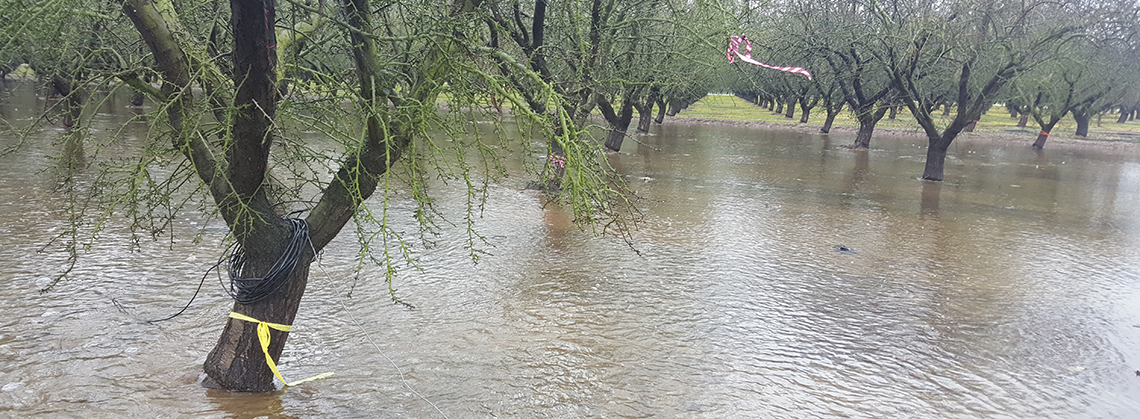Maintaining a viable agricultural community is critical to the ecological, social, and economic health of the Klamath Basin. However this will be difficult as we continue to face drought and place pressure on the limited supply of clean water. Micro-hydro development on irrigation canals and crop yield improvements through Scientific Irrigation Scheduling are innovative ways of improving farm productivity. A more exacting distribution of irrigated water based on soil type, crop species, slope of terrain and seasonal needs can use less water while increasing yield. The agricultural community is showing it is ready to find practical and innovative ways to reduce their power and water consumption, and adopt new efficiencies that will help them meet this goal while supporting the rich diversity of fish and wildlife in the region.
In many cases, farmers and ranchers who recognize the need for irrigation upgrades lack the security of water availability to move forward on costly investments. Large equipment changes require capital investment necessary to implement the needed improvements. Conservation groups provide technical assistance and grant options for piping projects that improve conveyance, water transfers that reduce on-farm needs and improvements to agricultural equipment that can greatly increase the sustainability of agricultural operations. Ensuring the use of efficient pumps and variable frequency drives save both water and energy. Pumping less often or more efficiently also saves energy and water - providing potential benefits to both fish and farmers.

Providing landowners with grant options for improved equipment, efficient spraying methods, and better timing of applications can greatly reduce the use of water in the Klamath Basin.
USDA Rural Development
The Rural Energy at Work, a coalition of public and private organizations dedicated to advancing energy efficiency and renewable energy to agricultural producers and small businesses in the Central Oregon region east of the Cascades including a small area of Northern California.
NRCS- Environmental Quality Incentives Program (EQIP)
The Environmental Quality Incentives Program (EQIP) is a voluntary program that provides financial and technical assistance to agricultural producers to plan and implement conservation practices that improve soil, water, plant, animal, air and related natural resources on agricultural land and non-industrial private forestland. EQIP may also help producers meet Federal, State, Tribal, and local environmental regulations. A special program under EQIP also exists for the Seasonal High Tunnel Initiative as a way to extend the growing season.
California State Water Efficiency and Enhancement Program (SWEEP)
Funding is now available to implement irrigation system improvements that save water and reduce greenhouse gases. Applications are due March 14th, 2017. View the Request for Grant Applications for details.


